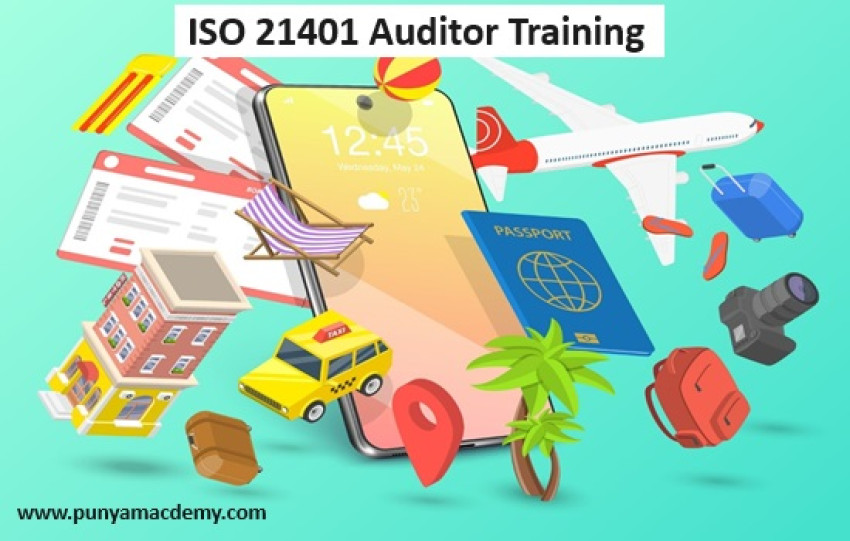
Concerns about the tourism industry's sustainability and environmental impact have drawn more attention in recent years. Demand for companies in the tourism industry to use sustainable practices is rising as tourists become more aware of their environmental impact.
To ensure responsible environmental protection and trust, ISO 21401 certification for Sustainability Management Systems (SMS) has become an important tool in this regard. However, getting certified as an ISO 21401 is only the first step; continuing to maintain compliance and enhance sustainable performance calls for knowledge and commitment. Hiring an ISO 21401-certified auditor becomes essential at this point.
Crucial Role of ISO 20401 Auditors in SMS
Here we mention the crucial role of ISO 20401 Auditors in the following:
Skill in Sustainability Management Systems: A framework designed expressly for the tourism industry, ISO 21401, lays out how to establish and maintain sustainability management systems. To fully comprehend these standards, certified auditors go through the extensive ISO 21401 auditor training and evaluation. Concerning improving sustainability performance, their experience guarantees a comprehensive assessment of an organization's SMS, pinpointing areas in need of development and offering helpful solutions.
Ensuring Sustainability Practice Compliance: Following sustainable practices is not just a question of goodwill in the tourism industry, but it is also a business need. The extensive knowledge of pertinent sustainability standards and legislation that ISO 21401-certified auditors hold guarantees that tourism firms remain in compliance with the law. Auditors lower the risk of fines and reputational harm by identifying any compliance issues and putting proactive measures in place to remedy them. This is done by performing thorough audits.
Increasing Ecological Preservation Activities: Destinations that host tourism frequently face both environmental concerns and economic benefits. To assess how tourism operations affect the environment and suggest ways to reduce adverse consequences, certified auditors are essential. Auditors assist tourist organizations in putting into effect policies that support environmental preservation and sustainable development, from cutting carbon emissions to safeguarding delicate ecosystems and wildlife habitats.
Enhancing Destination Flexibility: Travel sites around the world are at serious risk from environmental hazards and climate change. Tourism companies can increase their resilience against environmental hazards including natural catastrophes, extreme weather, and biodiversity loss by working with ISO 21401 accredited auditors to identify and mitigate these risks. Businesses may support the resilience and long-term profitability of destinations by incorporating sustainability concepts into their daily operations.
Enhancing Involvement of Stakeholders: To be sustainable, the tourism industry must work with a variety of stakeholders, including local governments, NGOs, and tourists themselves. Certified auditors assist tourism businesses in establishing partnerships, promoting discourse, and addressing sustainability-related issues by facilitating communication and cooperation among various stakeholders. Businesses can make sure that their sustainability initiatives are in line with regional demands and goals by including stakeholders in the decision-making process.
Boosting Competitiveness and Brand Image: Customers are beginning to favour travel locations and companies that emphasise sustainability and ethical tourism practices in today's cutthroat travel industry. A business's reputation is further enhanced by hiring a professional auditor to conduct routine audits, even though ISO 21401 certification already shows a commitment to sustainability. Businesses may attract eco-aware tourists, set themselves apart from rivals, and obtain a competitive edge in the market by exhibiting their commitment to environmental stewardship.
Increasing Economic Gains via Sustainability: Dispelling the myth that sustainability comes at extra expense, the tourism industry can reap long-term financial rewards from implementing sustainable practices. Certified ISO 21401 auditors assist companies in finding ways to cut costs by optimising resources, reducing waste, and increasing energy efficiency. Businesses in the tourism industry can minimise their environmental impact while increasing operational efficiency, cutting expenses, and increasing profitability by adopting sustainability.
In conclusion, tourism organizations that are dedicated to improving sustainability management systems must employ an ISO 21401-certified auditor. With their knowledge, auditors support efforts to protect the environment, build destination resilience, increase stakeholder participation, uphold the brand reputation, and generate financial gains through sustainable practices. Tourism businesses may ensure the preservation of natural resources and cultural heritage for future generations by collaborating with certified auditors to create a more sustainable and responsible tourism sector.



